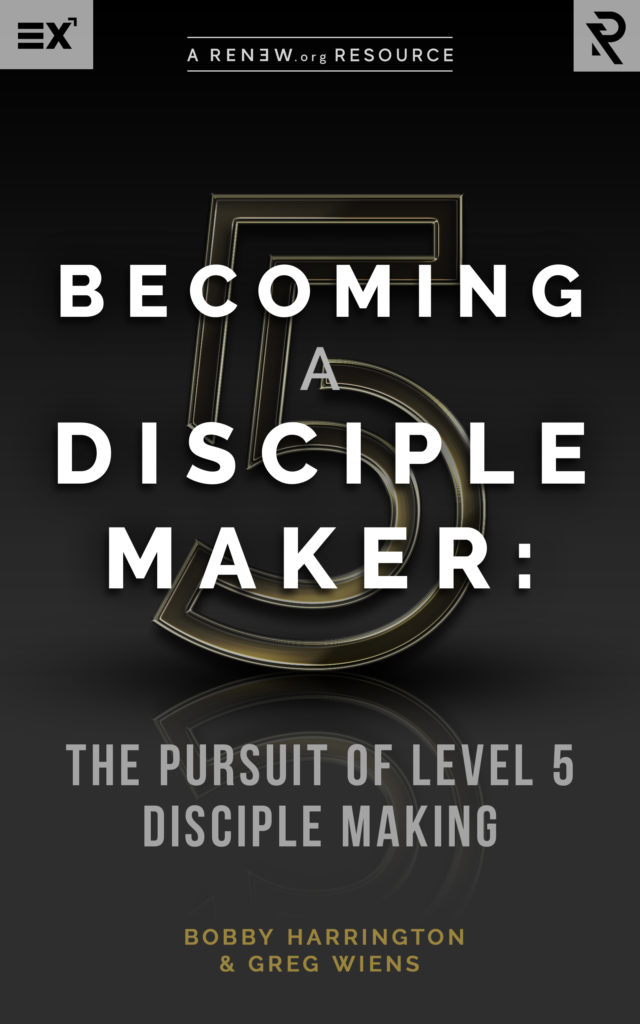
Pursuing Revival Is Better than Impressing Crowds
*Editor’s Note: Kelvin Teamer is the lead minister at Atlanta’s Bouldercrest Church of Christ. With mission work abroad and prayer and fasting at home, Bouldercrest has become an increasingly outward-focused, disciple making church. Here, he shares why being a disciple-making church is worth it, as well as some steps Bouldercrest is making toward that end.
Q: How can consumer Christianity be a bad thing when so many people want it?
I do think that that some church leaders want to preach what feels good and people often want to hear what makes them feel good. So, on the outside, that seems to be a natural connection. However, just because that’s the connection doesn’t mean that’s what’s best. My children love candy and, you know, I like buying them candy. That’s a natural connection, but it’s irresponsible for me to always get them candy.
Now I’ve learned that sometimes people want things that aren’t good for them because they don’t know anything else, and it’s a leader’s job to help them see what it is that they need. As responsible leaders guided by the Word of God, we have to be able to see what God expects, and feed that to our people. Even though our churches sometimes want spiritual junk food, it’s just not healthy for growth and development.
Q: What are some bad news indicators that a church is really just creating consumers of Christianity, even if they would like to be making actual followers of Jesus?
I think an indicator that they’re just creating consumers is when you really start preaching the things of Jesus and your attendance begins to decrease. Another indicator that you have a consumeristic mentality present is if you get many complaints or threats to leave if certain things aren’t done a certain way. I’m not talking about when people are asking for things to be done biblically, but rather when it’s a matter of opinion.
For example, if your service time is longer or shorter than they like, or if the style of worship is different than they’re used to. Those are some indicators that people are living under a kind of consumeristic mentality rather than a disciple-making mentality.
Q: So even though people might assume that making church all about the preferences of people would be the way to grow a church, the statistics are indicating that the younger generations are actually not very impressed and are hungry for substance. Even though the current stats aren’t necessarily encouraging for the American church, you have hope for the American church. What shape does that hope take? What can real revival look like in our churches?
I agree that the younger generation isn’t impressed when they don’t see something that feels authentic. Especially when there seems to be a mismatch between what they see biblically—what they see lived out in Jesus and even the first-century church—and what they see in many of American churches today.
I think that revival actually begins with a base of prayer. It begins with listening to God, humbly approaching Him to show us how to spark revival. I think that any revival that is generated from our own ingenuity and expertise is going to be short-lived.
Those men and women in Acts 1 who were there in that upper room were told to wait there for the coming of the Spirit. And I don’t read anywhere where these folks absolutely knew what they were going to do. These were people who were just simply obeying Jesus who had told them to wait. So, what they did in the waiting was pray, and it was then that the Holy Spirit came, and this spiritual fire began to burn.
I believe that if a true revival is to come, it begins with seeking God’s face, gathering together, praying in unity and in one accord, and seeking the guidance of the Holy Spirit. It’s not a matter of trusting in our own ingenuity and in our own expertise on how to grow a church.
Q: What are a couple of shifts your church has been making in order to position it for true, authentic increase? So that there isn’t just an increase in numbers alone, but in actual disciples of Jesus?
First, through prayer and fasting, we are asking God to open up doors for disciple-making. We are asking Him to send out laborers into the harvest. If you’re going to make a shift, let it begin with prayer and fasting. Second, we have been getting our church on the same page about what disciple-making is. What makes disciple making more than just evangelism, or more than just a one-on-one Bible study? So, those are the two main shifts: prayer and fasting, and getting on the same page about what it means to be a disciple-making church.









